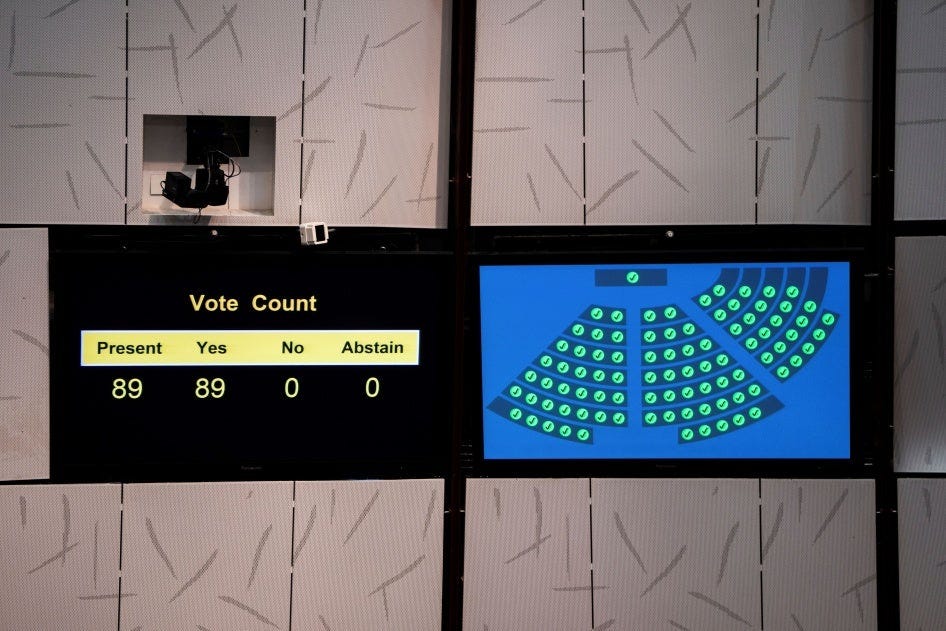China continues crackdown on Hong Kong
That "one country, two systems" agreement back in 1997 is looking at lot less viable today.
In March, Hong Kong’s legislative body (the Legislative Council aka LegCo) unanimously passed a new national security law, Article 23. The law, originally proposed in 2002, establishes harsh penalties for political crimes like treason and insurrection. Hong Kong’s executive claims the law is a crackdown on “external interference” and necessary to prevent Western espionage and protect the citizenry against “enemy forces”.
But in reality, this is just Beijing’s latest step to restrict Hong Kong’s autonomy and democracy.
The vote count for Article 23

To understand this new law though, we first have to understand what happened four years ago.
Let’s take a brief trip back to 2019 and 2020…
When the British transferred Hong Kong to China in 1997, a mini-constitution governing Hong Kong was drafted, known as the Basic Law. Part of the Basic Law, Article 5, stipulates that
[Mainland China’s] socialist system and policies shall not be practised in the Hong Kong Special Administrative Region, and the previous capitalist system and way of life shall remain unchanged for 50 years.
This meant that, Hong Kong would, in effect, have its own autonomous governing system, including its own judicial and legal system. The people would be governed under Hong Kong’s rule of law, not China’s. Yes, this would expire in 50 years (2047), so there was alway a bit of hesitation over what might come next, but that was a problem for a future date.
In 2019, it appeared that future date had arrived. In April of that year, Beijing had proposed an extradition law that would have allowed suspected criminals in Hong Kong to be extradited to mainland China for interrogation and prosecution.
Hongkongers spent the summer of 2019 protesting en masse against this bill, arguing that it was the first step towards consolidation with Beijing and would destroy Hong Kong’s autonomy. After a few months Beijing withdrew the bill, but the protests continued. The protestor’s demands expanded beyond the original remit of the extradition bill and focused on ensuring broader freedom for all Hongkongers.
Keep reading with a 7-day free trial
Subscribe to Nuance Matters to keep reading this post and get 7 days of free access to the full post archives.



